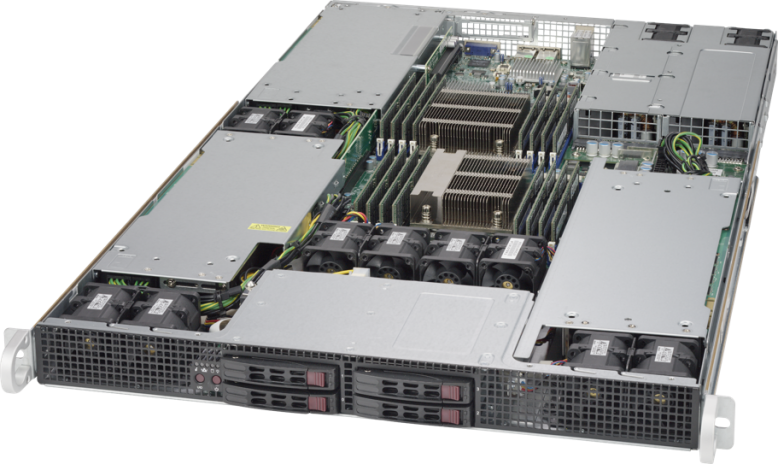STAC Reports: STAC-A2 on Supermicro with Windows and Linux using Haswell and Xeon Phi

Sets the bar for Windows performance in STAC-A2. Highest space efficiency of any system to date.
October 30, 2014 - London STAC Summit
Today STAC released audited STAC-A2 Benchmark results for a 2-socket Supermicro server with Haswell EP processors and an Intel Xeon Phi co-processor card using Windows Server 2012 R2 Datacenter Edition. The implementation code ("STAC-A2 Pack for Intel Composer XE (Rev E)") was the same source code used in some previous tests of Haswell systems on Linux.
These results set the bar for all STAC-A2 Benchmarks on a Windows operating system. Key results include:
- At 56 assets per rack unit, this system delivered the highest space efficiency of any system publically reported to date (STAC-A2.β2.GREEKS.SPACE_EFFICIENCY).
- In addition, this Windows system with 2 Intel Xeon CPUs and 1 Intel Xeon Phi co-processor card outperformed a Linux system with 2 CPUs and 2 GPUs (NVDA131118) both in warm runs of the end-to-end baseline Greeks time (STAC-A2.β2.GREEKS.TIME.WARM) and in maximum asset capacity (STAC-A2.β2.GREEKS.MAX_ASSETS).
The results of these Windows tests are available here.
Intel also submitted results to the STAC Vault of STAC-A2 tests on the same Supermicro server using Red Hat Enterprise Linux 6.5. Those results are available to qualified STAC Benchmark Council members here.
STAC-A2 is the user-developed benchmark standard based on financial market risk analysis. Designed by quants and technologists from some of the world's largest banks, STAC-A2 reports the performance, scaling, quality, and resource efficiency of any technology stack that is able to handle the workload (Monte Carlo estimation of Heston-based Greeks for a path-dependent, multi-asset option with early exercise).
As always, premium STAC subscribers can also access the source code and binaries used in these tests, as well as the micro-detailed configuration information for the systems tested.
About STAC News
Read the latest about research, events, and other important news from STAC.
